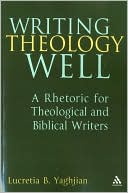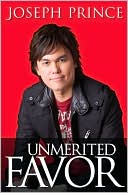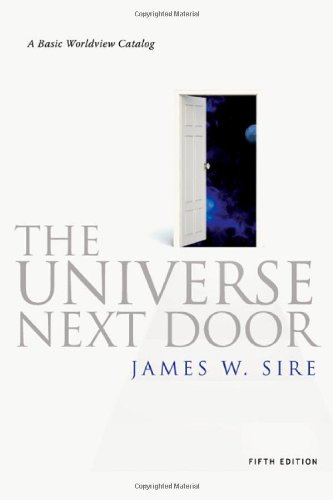Writing Theology Well
Search in google:
In its creative integration of the disciplines of writing, rhetoric, and theology, Writing Theology Well provides a standard text for theological educators engaged in the teaching and mentoring of writing across the theological curriculum. As a theological rhetoric, it will also encourage excellence in theological writing in the public domain by helping to equip students for their wider vocations as writers, preachers, and communicators in a variety of ministerial and professional contexts.
Acknowledgments xviiPreface xixWriting Theological Rhetorics WellWriting Theology Well in Its Own Context 3Starting Points 3The Sociorhetorical Context of Writing Theology 4The Sociohistorical Context of Writing Theology 6What Is Theology and Why Do Theologians Write It? 6Writing Theology as a Rhetorical Art with Augustine of Hippo 7Writing Theology as a Scholastic Science with Thomas Aquinas 8Writing Theology as a Communal Language with Teresa of Avila 9Writing Theology with Gutenberg's Printing Press and the Protestant Reformers 10Rewriting Theology as Speech with Friedrich Schleiermacher 10Writing Theology as a Theological Author with Albert Schweitzer 11Writing Theology as Nonviolent Resistance with Martin Luther King, Jr. 12Writing Theology as a Feminist Practice with Rebecca Chopp 13Writing Theology in Our Own Context and Its Audiences 14What Distinguishes Contemporary Theological Writing from Other Writing? 14To Whom and for Whom Is Contemporary Theology Being Written? 15Beginning a Theological Writing Assignment: Questions to Ask 16Concluding Reflections:Writing Theology Well as an Act of Faith 17Writing Theological Reflection Well: Rhetorics of Process, Problem Solving, and Proclamation 18Starting Points 18What Is Theological Reflection and Why Do Theologians Write It? 19A Rhetoric of Process 20A Rhetoric of Problem Solving 21A Rhetoric of Proclamation 22Writing Theological Reflection Papers: Purpose, Style, Voice 22Writing the One-Page Theological Reflection Paper in Two Voices 23Writing the One-Page Reflection Paper-An Overview 24Writing the One-Page Pastoral Reflection Paper: "Why Do You Follow Jesus?" 24Pre-writing the Pastoral Reflection Paper: Reading, Reflecting, Preparing 25Reading the assignment 25Reflecting on the task 25Preparing 26Freewriting or Outlining Draft # 1: Finding Out What You Want To Say 27Freewriting 27Outlining 28"Writing That and Only That" 30"Writing So That Others Will Want To Read It" 32Reviewing, Revising, and Refining Papers: A Theological Writers Checklist 34Concluding Reflections: Writing Theological Reflection Well 35Writing Theological Argument Well: Rhetorics of Inquiry, Reading, Reflection, and Persuasion 36Starting Points 36What Is the Genre of Argument and Why Do People Write It? 38The Deductive Path 39The Inductive Path 40What Is Theological Argument and Why Do Theologians Write It? 41The Rhetorics of Theological Argument: Inquiry, Reading, Reflection, Persuasion 43Inquiry 43Reading 43Reflection 45Persuasion 46Prerequisites of Writing Theological Argument in an Academic Voice 47Taking a Position 47Stating Premises and Defining Vocabulary 48Mapping the Argument 49Entering the Conversation 50Writing the One-Page Systematic Reflection Paper: "Was Jesus a Feminist?" 51Engaging the Question 51Re-engaging the Readings 51Developing a Thesis/Claim/"Answer" 52Elucidating and/or Qualifying the Claim 53Structuring the Argument (Grounds and Warrants) 53Concluding the Draft, Counting the Words, Revising to Size 55Writing the Theological Essay Examination Well: A "Blueprint" 57Preparing for the Examination 57Reading the Questions 58Rehearsing Your Response 58Writing the Examination 58Some Final Suggestions 58Concluding Reflections: Writing Theological Argument Well 58Writing the Theological Essay Well: Rhetorics of Identification, Correlation, Suspicion, and Construction 60Starting Points 60What Is an Essay and Why Do People Write It? 61What Is a Theological Essay and Why Do Theologians Write Them? 62What Kinds of Theological Essays Are There and How Shall We Write Them? 63What Is a Critical Theological Essay and How Shall We Write It? 63What are the rhetorics of the critical theological essay? 64Writing the Theological Summary Well: An Outline 65Writing the Theological Book Review Well: An Outline 68Writing the Theological Critique Well: An Outline 70What Is a Constructive Theological Essay and How Shall We Write It? 71What is a constructive theological essay? 72What is a constructive method? 72What Are the Rhetorics of a Constructive Theological Essay and How Do They Inform Its Writing? 73The method of correlation 73Charting the Rhetorics of the Constructive Theological Essay: Identification, Correlation, Suspicion, Construction 74Writing the Constructive Theological Essay Well: A Map of "Correlation" 75Writing the Constructive Theological Essay Well: A Structural Map 76Writing a Constructive Theological Essay of Your Own: A Progressive Model 77Concluding Reflections: Writing the Constructive Theological Essay Well 79Writing Theological and Biblical Research WellWriting Theological Research Well (I): Rhetorics of Research and Investigation 85Starting Points 85Approaching the Theological Writing and Research Process 86Writing Theological Research Well: A Preliminary Map 86What Is Research and What Makes People Do It? 87What Is Theological Research and Why Do Theologians Do It? 89How Does Writing Theological Research Differ from Other Kinds of Theological Writing? 89The Form of the Question 89A Methodology or Research Perspective 90Sources 91Conversation with the Present and the Past 92Developing the Question into a Theological Research Claim 93Narrowing Your Topic 94Is Your Research in Place or Must You Create a Research Space? 95The Research-in-Place Path 96The Create-a-Research-Space Path 96How should I begin? 96Framing the territory 98Reviewing the literature 98Curving a research niche, crafting a paper topic 100Making a research claim 103Pre-viewing the paper 104Creating a Research Space for the Historical Jesus with Albert Schweitzer 105Framing the historical Jesus research territory 105Carving a research niche for the historical Jesus 106Reviewing the literature 106Making a research claim 106Pre-viewing the research plan 107From Creating a Theological Research Space to Writing a Research Proposal 107Writing Church History Well: A Theological Writer's Outline 109Concluding Reflections: Writing Theological Research Well (I): Rhetorics of Research and Investigation 110Writing Theological Research Well (II): Rhetorics of Organization and Documentation 111Starting Points 111What Are the Organizational Dynamics of Writing Theological Research Well? 112Building on Your Strengths 112Developing Your Strengths with New Strategies 113Drafting a Preliminary "Map of Completion" 113What Are the Organizational Mechanics of Integrating Reading, Writing, and Research to Write a Theological Research Essay? 115Reading, Writing as/and Research: A Methodical Overview 115Organizing the reading for theological research 115Syntopical Reading Worksheet 117From reading researchfully to taking notes in your own way 118Mapping a research argument 119Integrating Reading, Writing, and Research to Write Theological Research Well 120Summarizing your source/author 120Questioning your source/author 121Talking back to your source/author 121Incorporating your source/author 121Organizing Research to Write a First Draft 123Organizing Research by Outlining 124Organizing Research by Drawing a First Draft 124Organizing Research by Writing 125Writing Theological Research Three Times: A Draft-by-Draft Plan 125The research-driven draft 125The writer-driven draft 126The audience-driven draft 126Writing, Revising, and Rewriting "Between the Drafts" 127Preparing and Presenting the Audience-Driven Draft 128What Are the Requirements for Documenting Sources and Avoiding Plagiarism in a Theological Research Essay? 129Plagiarism Preventions and Interventions 129Plagiarism, paraphrase, or summary? 130A cross-cultural caveat 131Preventing plagiarism as a theological task 131Plagiarism Prevention and Intervention Checklist 132Writing Theological Footnotes Well 132From writing to citing footnotes well 135Documenting Print Sources in Turabian Style: Overview 136Documenting Electronic Sources in Turabian Style: Overview 138To footnote or not to footnote? 139Keeping footnotes in their place 141Some Concluding Guidelines for Writing Theological Footnotes Well 141A Checklist for Final Preparation of a Theological Research Paper 142Concluding Reflections: Writing Theological Research Well (II) 143Writing the Biblical Essay Well (I): Rhetorics of Exegesis and Interpretation 145Starting Points 145Writing the Biblical Exegesis Well: Preliminary Questions 146What Is Biblical Exegesis? 146Why Do Biblical Scholars Write Exegesis? 146How Does Biblical Exegesis Differ from the Theological Genres That We Have Encountered So Far? 147What written biblical exegesis is Not 147What written biblical exegesis Is 147What Kinds of Papers Are Assigned in Biblical Studies Courses, and How Shall We Write Them? 151Writing Biblical Exegesis Well: Preliminary Strategies 151Writing the Critical-Historical Exegesis Well in Twelve Exegetical Memos 152From Writing Exegetical Memos to Writing the Biblical Exegesis Well 162Building a Rhetorical Framework by Beading an Exegetical Necklace 162Identifying the thread 162Stringing the beads 164Beading the necklace: "Text first" or "context first"? 164Clasping the necklace 166A Biblical Writer's Checklist for an Exegesis Paper 167Documenting Sources in SBL Style 169Concluding Reflections: Writing the Biblical Exegesis Well 171Writing the Biblical Essay Well (II): A Critical-Hermeneutical Rhetoric 173Starting Points 173A Hermeneutical Preface 174Hermeneutics as Reading the Word and Reading the World 174From the Critical-Historical Biblical Essay to the Critical-Hermeneutical Biblical Essay: A Hermeneutical Flow Chart 175E. D. Hirsch's Author-Centered Hermeneutic 177Resources for writing the biblical exegesis/essay well 177Hans-Georg Gadamer's Subject-Centered Hermeneutic 178Resources for writing the biblical exegesis/essay well 178Paul Ricoeur's Reader-Centered Hermeneutic 179Resources for writing the biblical exegesis/essay well 179The Writer-Centered Hermeneutic 180The Critical-Hermeneutical Path for Writing the Biblical Essay Well 182Introducing the Biblical Essay: Definitions and Distinguishing Features 182What Is a Critical-Hermeneutical Essay and How Shall We Write It? 183The Biblical Essay: A Critical-Hermeneutical Map 184Literary-Linguistic Locations 184Historical Investigations 184Theological Formulations 185Hermeneutical Destinations 186From Critical-Hermeneutical Memos to the Critical-Hermeneutical Essay: Outlining a Critical Framework, Building a Hermeneutical Bridge 190Outlining a Critical Framework 190Identifying the recurring threads 191Choosing the rhetorical string 191Stringing the beads 191Building Critical-Hermeneutical Bridges by Writing the Biblical Essay Well 193Building rhetorical bridges with writing 193Building contextual bridges with sociocultural models 194Building hermeneutical bridges with cross-disciplinary conversations 195Building dialogical bridges through a hermeneutics of diversity 196Concluding Reflections: From Building Hermeneutical Bridges to Finding Your Own Words 197Toward a Theological Style and Voice of Your OwnWriting with Theological Imagination Well: Rhetorics of Analogy, Metaphor, and Symbol 201Starting Points 201What Is the Theological Imagination and How Shall We Write with It? 202What Are the Rhetorics that Empower the Theological Imagination? 204Writing with Analogy Well 205Analogy: An Introduction 205Analogy: A Preliminary Definition 205Analogy: Classical Approaches 206Analogy: Contemporary Approaches 206Writing with Analogy Well: A Writer-Based Guide 207Writing analogy well as analogical method, or rhetoric 207Writing analogy well with analogical speech and syntax 210Writing with Metaphor Well 212Metaphor: An Introduction 212Metaphor: The Word-Based Approach 213Metaphor: The Sentence-Based Approach 213Toward a Writer-Based Approach to Metaphor 215Writing with Metaphor Well: A Writer-Based Guide 216Building a Bridge from Metaphor to Symbol: An Interlude 219Writing with Symbol Well 220Symbol: An Introduction 220Definitions of Symbol: Four Starting Points 221Sign-based definition of symbol 221Meaning-based definition of symbol 222Mediation-based definition of symbol 223Text-based definition of symbol 225Writing with Symbol Well: A Writer-Based Guide 228Discovering the symbol 228Developing the symbol 229Dialoguing with the symbol 229Deconstructing the symbol 230Reconstructing the symbol 230Concluding Reflections: Writing with Theological Imagination Well 232Rewriting Theology Well (I): Rhetorics of Style and Voice 233Starting Points 233What Is "Style," and How Do Writers Define It? 234Style Is "How You Write" 236Style Is "How You Write What You Write" 236Style Is "How You Write What You Write When You Write in a Given Genre" 237Style Is "How You Write What You Write When You Write from a Stance" 237Style Is "How You Write What You Write When You Write for an Audience" 239What Is Theological Style, Narrowly Conceived, and How Do Theological Writers Define It? 240Saint Augustine 240Thomas Aquinas 241Julian of Norwich 241What Is Theological Style, Broadly Conceived, and How Do Theological Writers Define It? 242What is Theological Style, Broadly Conceived, and How Shall We Define it? 243What Is Voice and the Relationship between Style and Voice in Theological Writing? 244What Is Voice? 244What Is the Relationship between Style and Voice in Theological Writing? 245Toward a Theological Voice of One's Own 246How Does One Identify, Develop, and Refine a Theological Voice of One's Own? 247Theological Plain Style: A Profile for Theological Writers 249Characteristics of Theological Plain Style for Theological Writers 249Inclusive Language Style Sheet for Theological Writers 250Concluding Reflections: Rewriting Theology Well: Rhetorics of Style and Voice 252Rewriting Theology Well (II): Rhetorics of Words, Sentences, and Paragraphs 253Starting Points 253What Do Theological Words Do? Finding, Choosing, and Using Words Well to Write Theology Well 254The Parts of Speech and Their Place in Theological Prose 254Nouns 254Verbs 255Choosing Theological Words Well-A Selective Sampling 258Concrete words 258Conceptual words 259Critical words 260Constructed words 261Figurative words 262Choosing and Using Words: A Theological Writer's Checklist 262What Do Theological Sentences Do? Writing Sentences Well to Write Theological Sentences Well 263Do You Like Sentences? 264How to Write Sentences Well: A Brief Review 264Capitalizing and punctuating sentences correctly 265Ordering sentences clearly and coherently 265Combining sentence elements skillfully 265Correcting sentence errors effectively 266Constructing sentences fluently 267Writing Theological Sentences Well: A Historical Introduction 268What do Theological Sentences Do? 268They ask questions 268The make assertions 269They define terms 270They compare and contrast theological subject matter 271They summarize and synthesize 273Writing Sentences Well: A Theological Writer's Checklist 274What Do Theological Paragraphs Do? Writing Paragraphs Well to Write a Theological Paper Well 275Unity 276Coherence 277Emphasis 277The Long and the Short of It 277Writing Paragraphs with Unity, Coherence, and Emphasis: A Revision Heuristic 278Final Considerations 279What Do Theological Paragraphs Do? Writing Theological Paragraphs Well with Elsa Tamez and Jon Sobrino 279Introductory paragraphs 280Expository paragraphs 281Evidential paragraphs 282Transitional paragraphs 283Concluding paragraphs 284Writing Paragraphs Well: A Theological Writer's Checklist 286Concluding Reflections: Writing Theological Words, Sentences, and Paragraphs Well 287Rewriting Theology Well (III): A Rhetoric of Revision 288Starting Points 288Rewriting, Revision, and Becoming Your Own Best Editor 289The Chopping Block 289The Writing Patch 290Waiting 291Watering 291Fertilizing 291Grafting 291Creating the conditions 291Back to the Drawing Board 292A Theological Style and Voice of Your Own 292The Peer Editing Heuristic 296Editing for Grammatical Grace 298A Revision Heuristic of Your Own 299Concluding Reflections: Rewriting Theology Well 301Epilogue: Writing Theology Well in Your New Context: From Writing for Professors to Writing with a Professional Voice 302Notes 305Index 348








